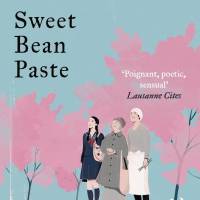"Sweet Bean Paste" is a subtle, moving exploration of redemption in an unforgiving society. The story is told from the perspective of Sentaro, a man whose dreams of becoming a writer were derailed by youthful folly and a spell in prison. Now, he works in a shop making and selling dorayaki, pancakes filled with sweet bean paste. Beyond working to pay off his debts to the shop owner, Sentaro has no hopes or ambitions. He drifts through his life halfheartedly baking and wholeheartedly drinking.
Sweet Bean Paste, by Durian Sukegawa, Translated by Alison Watts.
224 pages
ONEWORLD, Fiction.
One spring, Tokue, an elderly woman with crippled hands, comes into the shop offering to teach Sentaro the secret of making delicious sweet bean paste. Tokue is also an outcast. As a child she contracted leprosy and was incarcerated in a leper community. Japan's regressive laws concerning leprosy meant she spent her whole life in the community despite having been cured 40 years prior. The experience taught her patience and perspective, two things Sentaro lacks.
Sukegawa's writing style, delicately translated by Alison Watts, is well-matched to the subject matter: a slow, muted movement that gently guides the reader, while leaving the unnecessary unsaid. It is a very Japanese book, centering around the belief that peace — if not happiness — can be found in the discipline of pursuing one thing toward perfection. It is an original twist on the "odd couple" genre, in which two unlikely companions find they have much to offer each other, and retains much of the humor that genre entails. A book with deceptive heft and lingering resonance.
















With your current subscription plan you can comment on stories. However, before writing your first comment, please create a display name in the Profile section of your subscriber account page.